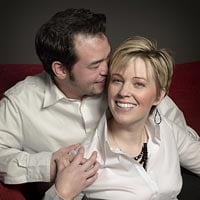In the past few years journalists have developed a strain of religion reportage that centers on a stunt, one patterned after George Plimpton’s turn as a major-league pitcher or maybe John Howard Griffin’s “Black Like Me.” The latest version, by Brown University senior Kevin Roose, follows the gag faithfully.
As a junior at Brown University, Roose spent his semester “abroad” as a transfer student at Liberty University, the strictly Christian Virginia school founded by Jerry Falwell. He congratulates himself on his own wordliness (Brown, he tells us, is “a school whose overall social climate, according to Falwellian standards at least, is only a notch or two above Sodom and Gomorrah.”) He learns the folkways of the school and bonds with his dormmates. His own spirituality unexpectedly deepens. He keeps in touch with friends he’s made. Following another prerequisite for the genre, Roose’s book, “The Unlikely Disciple,” boasts a long subtitle, which I forget but which translates to “I Was a Teenage Evangelical.”
I confess that I’ve only read the excerpts of “Unlikely Disciple” available on Salon and on Roose’s own site. This isn’t laziness alone: I find these accounts nearly unreadable in the repetition of scenes: the hopeless street evangelizing, the conversion attempts, the off-the-reservation partying. There’s little that suggests that Roose has moved the goalposts on our understanding of evangelicals. The focus on his own daring experiment enables Roose to refrain from meaningful analysis: his qualification for his inquiry is precisely that he knows so little of his exotic prey. The arc of his story is his journey through the Christian wilderness. But he’s no gonzo journo who blows up the assignment with fear and loathing: as he explains on his blog, he now prays daily and more readily calls himself a Christian (he was raised a Quaker).
Roose got the idea for his book while serving as an intern to A.J. Jacobs for his “The Year of Living Bibically: One Man’s Humble Quest to Follow the Bible as Literally as Possible,” but in subject matter it more resembles “God’s Harvard: A Christian College on a Mission to Save America” Hanna Rosin’s more sincerely serious account of getting to know students at Patrick Henry College, the academy aimed at grooming politically effective conservative Christians. (Rosin’s husband, David Plotz, has also just published a more sincerely serious version of Jacobs’s book, “Good Book: The Bizarre, Hilarious, Disturbing, Marvelous, and Inspiring Things I Learned When I Read Every Single Word of the Bible”).
It takes one kind of blindness, of course, in pronouncing the Bible and its adherents to be genuinely interesting and only slightly annoying, as opposed to truly pernicious. But there is something else–the presumption that we the reader might not have realized that religion–even other people’s religion–has some positive values at its core. We wouldn’t credit a writer who took a book to tell us that, snobs aside of course, wine tastes good or that–look, everyone!–football can be damned exciting. Yet these authors sport an arrogant confidence that readers will not only forgive these authors for their lack of sophistication about religion, but admire them for discovering it in public.


